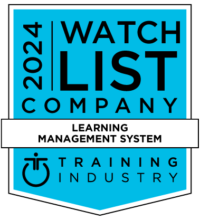Executive coaching has become a cornerstone of leadership development, helping senior leaders sharpen their skills, enhance decision-making, and drive business performance. According to the International Coaching Federation (ICF), the global executive coaching industry is valued at over $4.5 billion, reflecting its growing importance in corporate strategy.
But what exactly are the key areas of growth targeted by executive coaching, and how can organizations measure its impact?
Key Areas of Growth in Executive Coaching
Executive coaching typically focuses on five primary areas of development:
Leadership and Strategic Thinking
Effective leadership requires the ability to think strategically and inspire teams to align with a shared vision. Coaches work with executives to:
- Strengthen decision-making skills
- Develop long-term strategic plans
- Improve adaptability in dynamic business environments
Research Insight: A study by McKinsey & Company (2022) found that companies with highly strategic leaders are 2.4 times more likely to outperform their peers in profitability.
Emotional Intelligence and Self-Awareness
High emotional intelligence (EQ) is critical for leadership success. Executive coaches help leaders:
- Identify and regulate their emotions
- Improve empathy and interpersonal communication
- Build stronger relationships with team members
Research Insight: According to the Harvard Business Review, 90% of top-performing executives have high emotional intelligence, underscoring its impact on performance.
Communication and Influence
Strong communication skills enable leaders to motivate teams, resolve conflicts, and drive collaboration. Coaching addresses:
- Clarity in messaging
- Active listening techniques
- Managing difficult conversations
Example: A Fortune 500 company that implemented targeted communication coaching reported a 30% improvement in employee engagement and team cohesion.
Decision-Making and Problem-Solving
Coaches help executives refine their analytical thinking and decision-making processes by:
- Teaching structured problem-solving frameworks
- Encouraging data-driven decision-making
- Enhancing confidence under pressure
Research Insight: A study by Korn Ferry (2023) showed that executives who received decision-making coaching were 25% more effective in high-stakes situations.
Performance and Accountability
Executive coaching reinforces goal-setting and accountability to drive business outcomes. Key focuses include:
- Defining key performance indicators (KPIs)
- Aligning personal and organizational goals
- Providing regular progress assessments
Example: A global tech firm that adopted performance-based executive coaching saw a 20% increase in leadership retention and business growth within 12 months.
Measuring success requires a structured approach.
While executive coaching delivers valuable personal and professional growth, measuring its success requires a structured approach:
360-Degree Feedback
Collecting input from peers, direct reports, and senior leadership provides a comprehensive view of behavioral changes and leadership effectiveness.
Example: Post-coaching 360-degree reviews often show improved scores in areas like decision-making, communication, and team alignment.
Goal Achievement and Business Outcomes
Align coaching outcomes with business goals to measure tangible improvements:
- Revenue growth
- Employee engagement and retention
- Increased productivity
Research Insight: A study by the ICF (2023) found that 86% of companies reported a positive ROI from executive coaching, with a median return of 7x the initial investment.
Employee Engagement and Team Performance
Track how leadership improvements translate to team morale and productivity using employee engagement surveys and performance metrics.
Example: Leaders who improved their emotional intelligence and communication saw a 15% increase in team satisfaction scores within six months.
Behavioral Changes and Adaptability
Observe how leaders handle challenges post-coaching:
- Are they making more confident decisions?
- Is communication with their teams more effective?
- Are they responding more effectively to market shifts?
How Coaching Management Software Supports Program Effectiveness
Coaching management software plays a crucial role in ensuring that executive coaching programs are structured, measurable, and scalable and delivers results. You can:
- Track, manage & report KPIs
- Automate routine tasks
- Centralize management of scheduling, programs, participants & clients
- Strengthen collaboration & relationships
- Improve decision-making with real-time analytics
Coaching management software features to expect:
Centralized Goal Tracking and Progress Monitoring
Coaching platforms allow both coaches and coachees to set, track, and adjust goals in real-time. Leaders can see how their development aligns with business objectives and measure progress with concrete data.
Example: Platforms like TRAKCoaching provide dashboards that track learning activities, sessions, and progress. The mobile app allows on-the-go coaches and coachees to track conversations, take notes, and more from anywhere, anytime.
Data-Driven Insights and Reporting
Advanced coaching software aggregates data from feedback surveys, performance reviews, and business outcomes to generate detailed reports. This allows HR teams to evaluate coaching ROI and make data-backed decisions.
Example: A company using AI-driven insights from coaching software saw a 25% improvement in leadership performance within one year.
Structured Feedback and Accountability
Software enables real-time feedback from peers, direct reports, and managers. Regular check-ins and automated reminders keep leaders accountable and engaged in the coaching process.
Example: Companies using structured feedback tools report higher goal completion rates and stronger alignment with business priorities.
Personalized Learning and Adaptive Coaching
AI-powered platforms can recommend tailored learning modules, coaching resources, and peer insights based on an executive’s unique development needs. This ensures that coaching remains relevant and impactful.
Example: Adaptive coaching platforms have been shown to improve learning retention by 30%, according to a Deloitte (2023) study.
Executive coaching delivers powerful, measurable results when aligned with business objectives and leadership growth areas. By focusing on strategic thinking, emotional intelligence, communication, decision-making, and performance, executive coaching helps unlock leadership potential and drive sustained business success.
With data-backed insights and structured measurement approaches—enhanced by coaching management software—organizations can ensure that their executive coaching programs deliver long-term value and competitive advantage.








